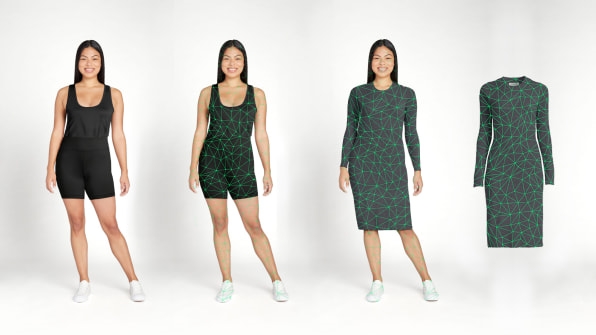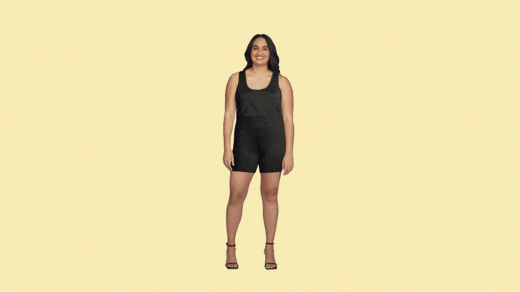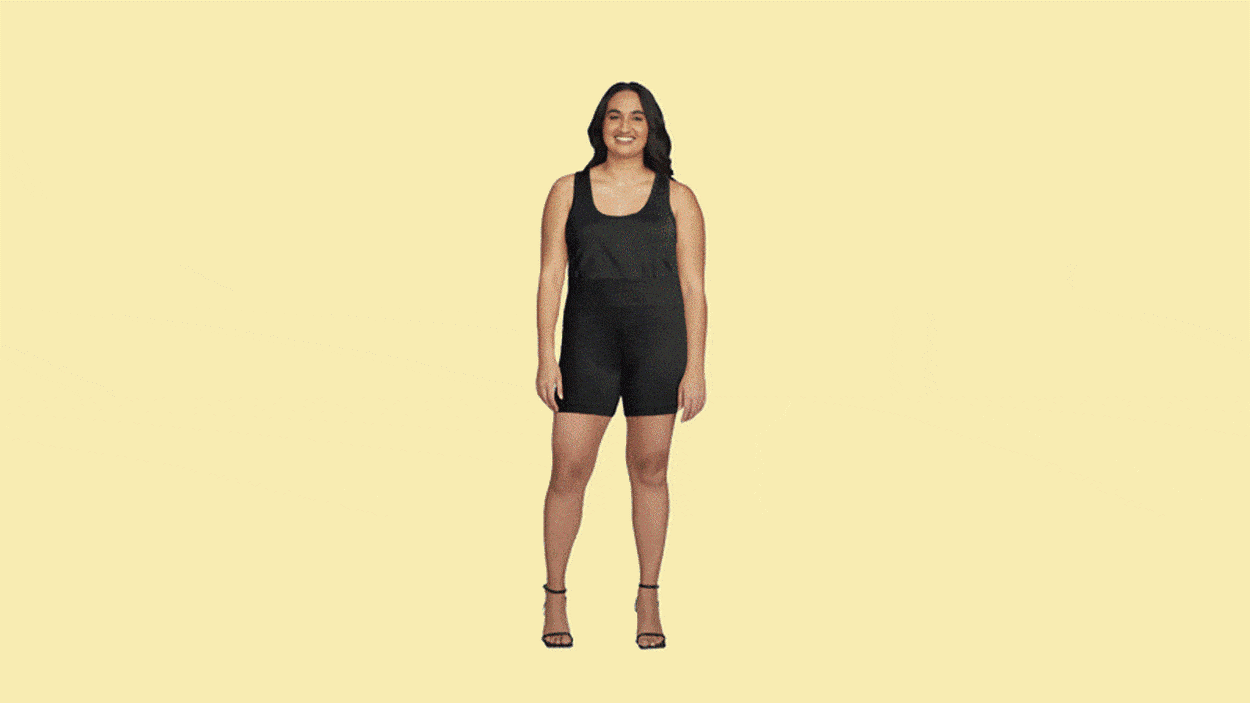Walmart rolls out a new AR feature to let you try on clothing virtually
Walmart shoppers will now be able to virtually try on clothes without leaving home.
A new feature, rolled out on Thursday in Walmart’s iOS app, uses photos that customers upload to show how clothing will look on their bodies. The technology, called Be Your Own Model, utilizes machine learning technology and does more than just superimpose images of garments on potential buyers. “We don’t want it to look like a paper doll,” says Denise Incandela, EVP of apparel and private brands for Walmart U.S. “It’s way more sophisticated than that.”
It uses technology first developed for use in topographic mapping of the Earth that allows customers to see how garments will actually fit on the bodies, complete with realistic shadows, colors, and even simulated fabric draping.
“When you look at the technology that’s used to derive topographic maps and then look at features that you would overlay onto them, it’s very similar and very analogous to creating a map of a customer,” says Cheryl Ainoa, senior vice president of new businesses and emerging tech at Walmart Global Tech. “We use some pretty sophisticated machine learning models to create the topographic map of your image.”

Shoppers can also compare different versions of the same item, experimenting with sizes and colors without having to order and return items or make physical trips to a Walmart fitting room.
It’s the latest in a push by Walmart to use augmented reality to let shoppers test out products from the comfort of their own homes. The retailer previously rolled out tools to visualize how furniture looks in a space, virtually try on glasses for sale at its Sam’s Club unit, and see how clothing looks on a model who resembles them. That “Choose My Model” feature has since expanded from 50 models to 120 after customer requests for more options. And letting shoppers virtually model clothing themselves is the next logical step, says Incandela.
“The one thing we got asked for again and again was more models,” she says.
Both “model” features follow last year’s acquisition of Zeekit, a company focused on virtual try-on technology, extensive development efforts, and user testing designed to make the home photography process as seamless as possible.
“The most complicated part about being your own model is making it really easy for people to take the right picture,” Ainoa says, adding that the company believes that it’s succeeded in making it “harder to do it wrong than it is to do it right.”
Walmart’s engineers also worked to make the process energy efficient, so shoppers don’t have to worry about running down their phones’ batteries while they shop, she says.
“We actually want people to be able to be trying stuff on for hours, so we had to make it so it’s really, really light on battery usage,” she says.
The new feature already encompasses 270,000 women’s clothing items, according to Walmart, including some from its own brands like Free Assembly, Scoop, Sofia Jeans, and Sofia Active (both by Sofia Vergara), as well as companies like Champion, Levi’s, and Hanes. Also included are items on Walmart Marketplace, which expects the lineup to continue to grow. Still, Incandela says that she expects the feature won’t keep customers from coming to Walmart’s brick-and-mortar stores, since she’s found that shoppers generally want a mix of in-store shopping and online convenience.
The company expects to expand the feature to allow iOS users to take a picture that can be used on both the Walmart website and app and says it will roll out to Android users in the coming weeks. Menswear and children’s clothing and accessories are likely to one day be available to try on, and the technology will likely continue to improve as more shoppers use it, Incandela says.
“What we want to do is get it out there, learn from the customer, and continue to evolve it,” she says.
Fast Company , Read Full Story
(47)



